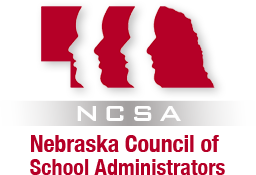Dr. Tami Eshleman
The purpose of this study is to determine if and how each of the two accreditation options in Nebraska may influence student achievement outcomes. A mixed-methods study was developed. Phase I quantitative analysis determined whether a significant difference existed in the ACT composite scores and the NeSA reading and math assessments in schools accredited by either the Nebraska Frameworks or AdvancED.
The analysis revealed that NeSA math was influenced by accreditation choice. Based on the quantitative results, school superintendents were identified for Phase II qualitative methods to survey and interview to share (a) attributes that contributed to their academic success, (b) how accreditation influences best teaching practices, and (c) what challenges affect student achievement.
Respondents did not attribute their success to accreditation process. The districts’ successes were based on processes that were developed by the district leaders. Personnel contributed to the success according to the respondents. Policymakers should focus on reducing the requirements for accountability and accreditation that would allow districts to focus on improving student achievement.
























